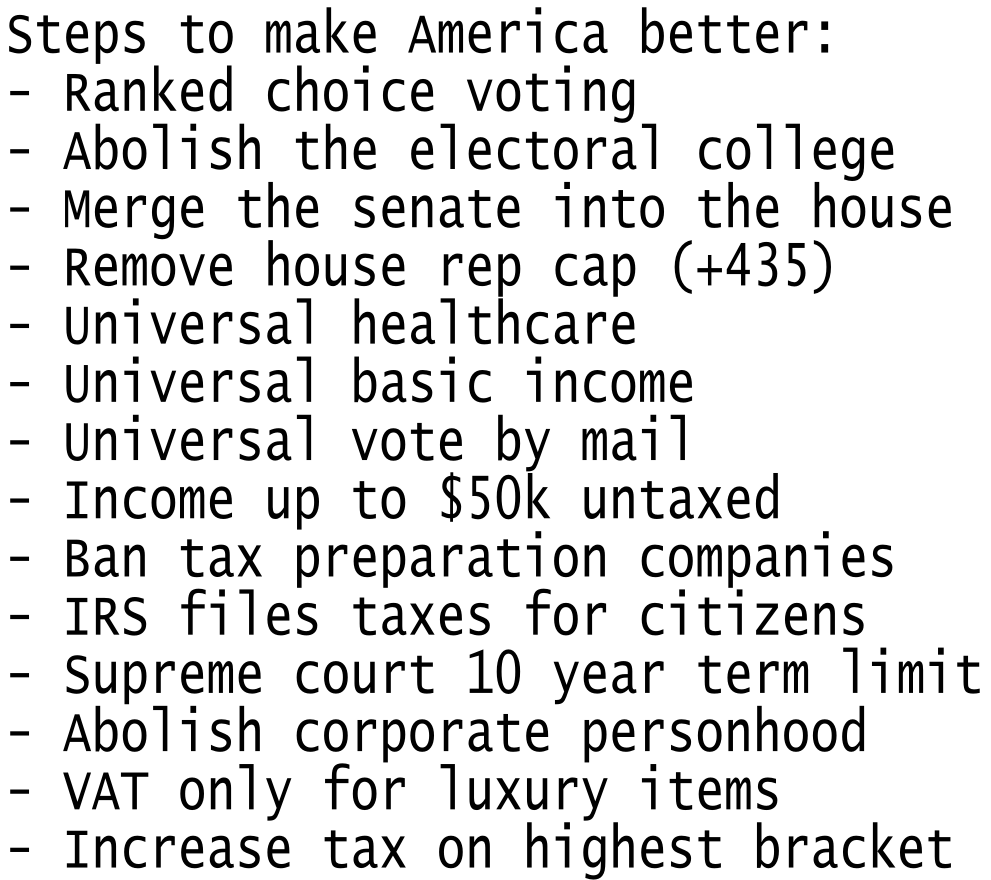this post was submitted on 07 Mar 2024
994 points (91.3% liked)
General Discussion
12091 readers
2 users here now
Welcome to Lemmy.World General!
This is a community for general discussion where you can get your bearings in the fediverse. Discuss topics & ask questions that don't seem to fit in any other community, or don't have an active community yet.
🪆 About Lemmy World
🧭 Finding Communities
Feel free to ask here or over in: [email protected]!
Also keep an eye on:
For more involved tools to find communities to join: check out Lemmyverse!
💬 Additional Discussion Focused Communities:
- [email protected] - Note this is for more serious discussions.
- [email protected] - The opposite of the above, for more laidback chat!
- [email protected] - Into video games? Here's a place to discuss them!
- [email protected] - Watched a movie and wanna talk to others about it? Here's a place to do so!
- [email protected] - Want to talk politics apart from political news? Here's a community for that!
Rules
Remember, Lemmy World rules also apply here.
0. See: Rules for Users.
- No bigotry: including racism, sexism, homophobia, transphobia, or xenophobia.
- Be respectful. Everyone should feel welcome here.
- Be thoughtful and helpful: even with ‘silly’ questions. The world won’t be made better by dismissive comments to others on Lemmy.
- Link posts should include some context/opinion in the body text when the title is unaltered, or be titled to encourage discussion.
- Posts concerning other instances' activity/decisions are better suited to [email protected] or [email protected] communities.
- No Ads/Spamming.
- No NSFW content.
founded 1 year ago
MODERATORS
you are viewing a single comment's thread
view the rest of the comments
view the rest of the comments

Yeah that is a good question. It is meant to tax strictly the value of the land. So undeveloped rural land will be taxed very low, vs say undeveloped urban land. The idea is to incentivize productive land use of more valuable land so that as the value of the land goes up, it becomes untenable not to put it to use. In your case, it the land is unbuildable then then the tax would be quite low, even if things to get built up around you. This is just the tip of the iceberg of an economic theory called Georgism, that I am still wrapping my head around.